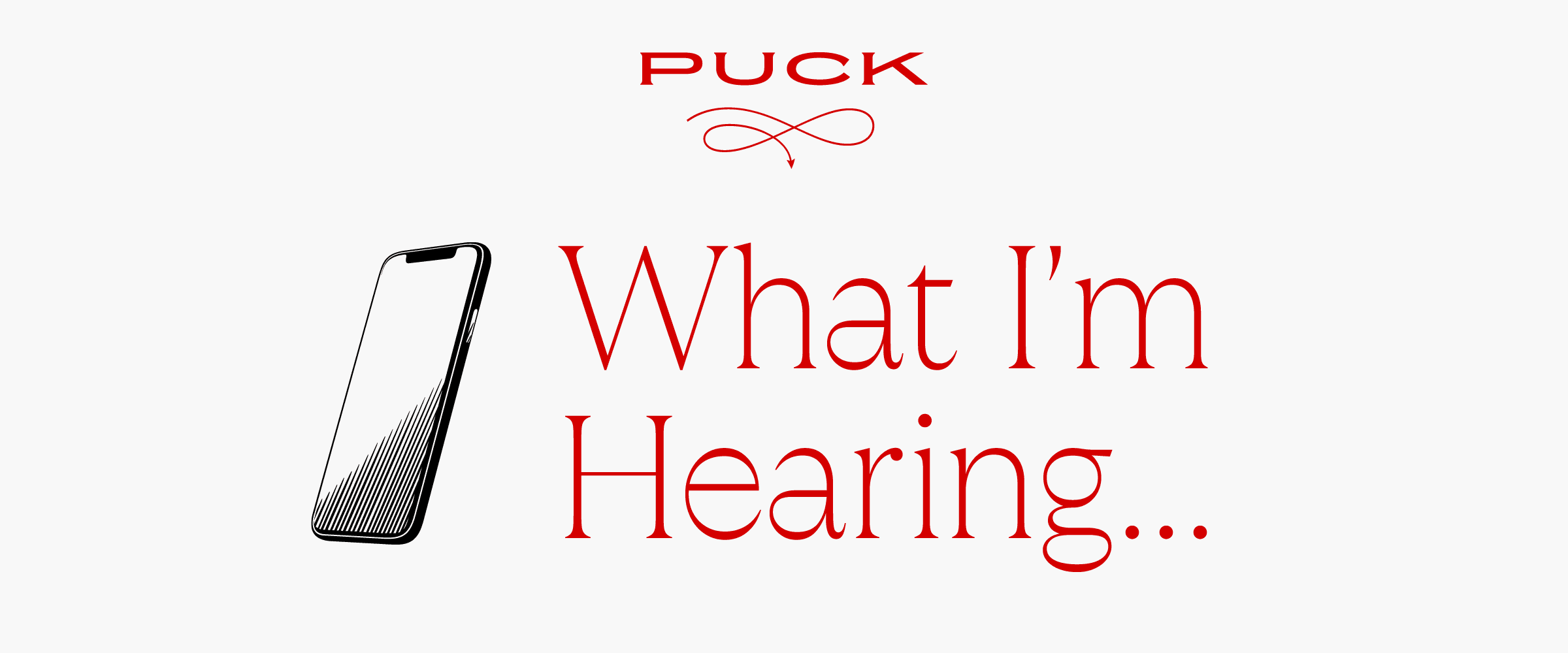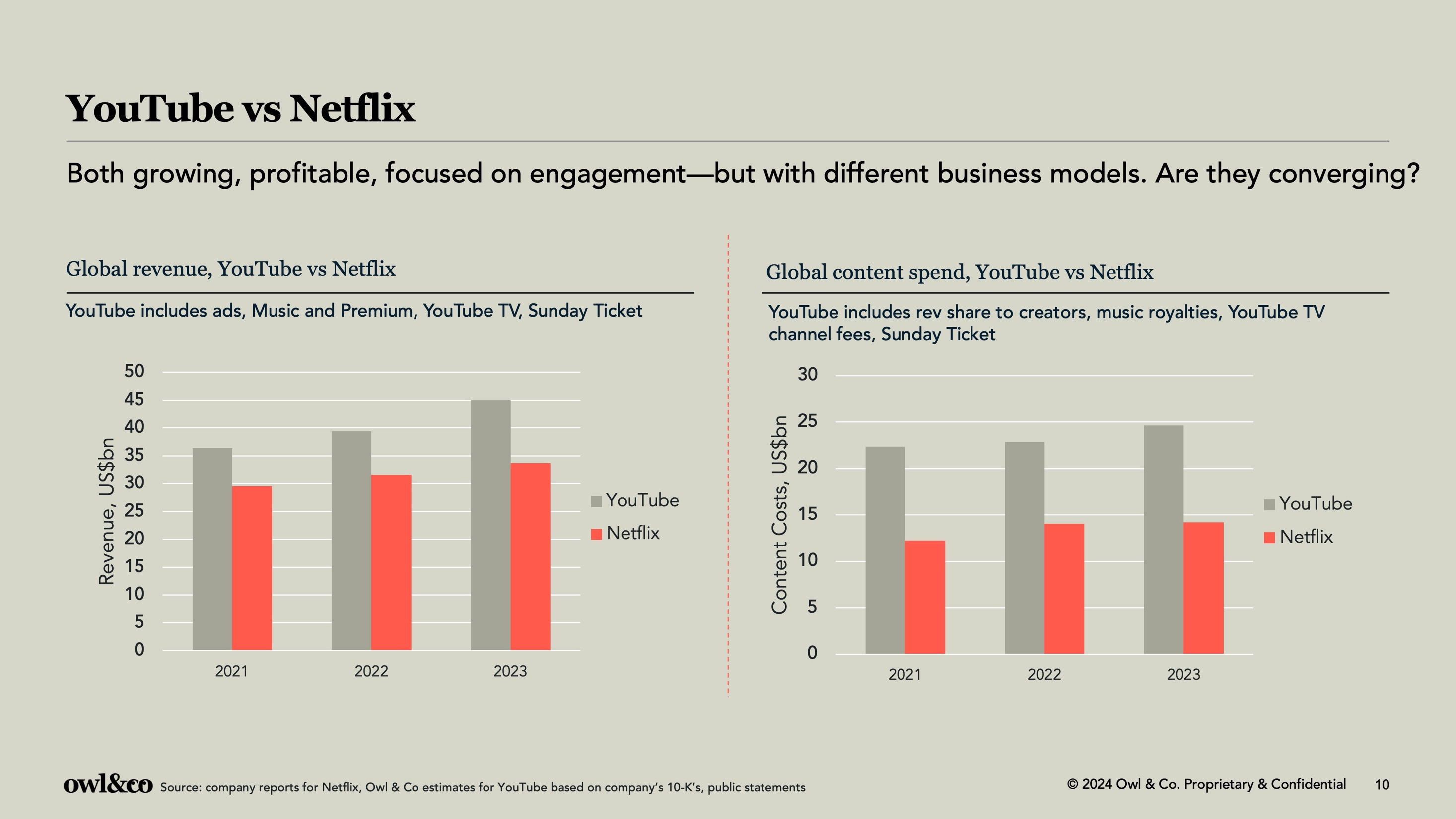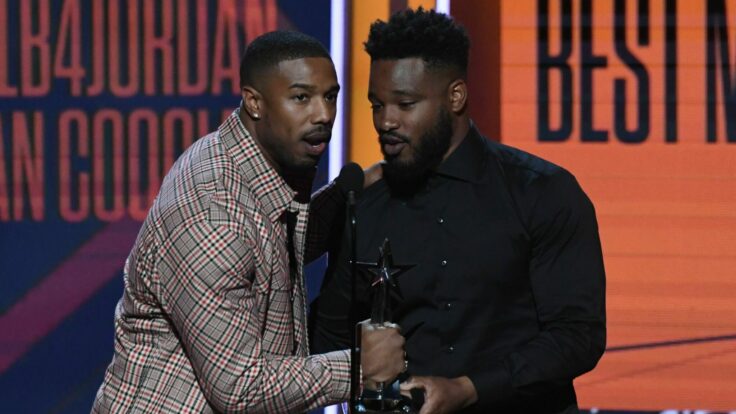 |
|
Welcome back to What I’m Hearing, where I’m still awaiting my invite to Ari Emanuel’s The Weekend event in Aspen, which begins tonight. Meanwhile, I’m looking at the latest Netflix data dump and Ted Sarandos’s new and not-at-all-surprising role as crusader for industry-wide transparency. Plus, the latest Golden Globes insanity…
Got a news tip or an idea for me? Just reply to this email or message me anonymously on Signal at 310-804-3198.
Let’s begin…
|
|
|
- Who’s gonna sue over the Lionsgate A.I. deal?: When the history of Hollywood and A.I. is written (probably by A.I.), let’s all remember that Lionsgate—the studio that brought us the bombs Borderlands, The Crow, and The Killer’s Game all in about a month—was the first to willingly hand over its library to a learning model. And C.E.O. Jon Feltheimer and vice chair Michael Burns did it not just for money, but for a new tool to enable their own A.I. dreams of cheaper production. The question now is: Whose rights are potentially violated by this deal? Runway, the generative A.I. startup, has already been sued for copyright infringement over its practices, and I’m hearing anger from the talent community over potential right-of-publicity claims and the use of names, images, and likenesses.
- It’s not show parties, it’s show business: At Sundance in January, I bumped into the actor Colman Domingo at the valet outside a party that his Gersh agents had thrown to celebrate his Oscar nomination for Rustin. That’s a nice gesture, I thought—an agency going out of its way to honor a specific client who was having a career-defining moment. Welp! Domingo, now back in the Oscar race for Sing Sing, just left Gersh for WME, along with his agent Elizabeth Wiederseim.
- Variety is now pimping for the Globes: Remember when the sale of the Golden Globes to Todd Boehly and Jay Penske was supposed to clean up an organization that was so corrupt and tone-deaf that the town’s publicists were compelled to organize a boycott? Welp again!
Penske’s Variety is now pitching studios on “a series of intimate, curated dinners” with—you guessed it—the Association formerly known as the Hollywood Foreign Press. For a low-low six figure price, you get “a panel conversation with your contending talent followed by an upscale dining experience with a guest list of 30-40 voters,” according to the pitch deck being forwarded around among the outraged awards marketers. It’s all “in collaboration with the Golden Globes,” meaning that Variety, ostensibly a news organization, is now pimping out its corporate sibling for money—definitely something the trades would cover, if Penske didn’t own them all.
Selling access is all part of the New Globes—which, in the name of “reform,” has merely been corporatized. It’s the same semi-corrupt, crass, profiteering enterprise, just supersized and benefitting two super rich guys instead of a group of journalists. Nice work, everyone! Last year, the Globes initiated submission fees, and this year they’re charging a $5,000+ per project “administration fee” to put films and shows on its viewing portal, plus $2,000 per film and $350 per episode of TV as a “submission fee,” plus more for individual submissions. Outlets have been told that if they pay to upload more than 14 titles, they will get preferred display treatment on the viewing portal. The assumption is that the larger companies—Netflix, Disney, etcetera—will pay up, while smaller outlets are ghettoized. Other awards bodies also charge to submit, of course, but guild honors like the SAG Awards ask much less, and that money goes to a performers union, not a for-profit corporation.
And while studios used to have access to Globes voters, those communications are now being controlled and monetized by Penske. “If you are interested in outreaching to voters, communications may be sent via a Golden Globes-approved mailing house for distribution for a $1,000 administration fee,” read a recent invite for an upcoming cocktail party at the London Film Festival.
Plus, the Globes now charge $2,000 (plus a $90 handling fee!) per ticket to the show. And while last year they gave out four tickets for each nominated film and series, and two tickets for each nominee, good luck predicting where you will sit after January’s debacle. Kieran Culkin was placed at a different table from the rest of the Succession cast. Top executives were seated in Siberia. People freaked out.
But what are they gonna do? Two awards marketers I spoke with said they’d probably cut their advertising spend with Penske outlets as a form of protest. They could boycott the Globes, but now that the show has shaken the publicist boycott and will air on CBS, it’s still a decent promotional vehicle for awards movies. Most likely, the studios and streamers will complain and capitulate, at least until the New Globes aim even lower next year.
- Box office over/under: Paramount’s Transformers One, the animated prequel we all asked for, is tracking between $30 million and $34 million domestically. Let’s set the line at $32 million, and I’ll take the over, since the most recent new family movie in theaters was Harold and the Purple Crayon back on August 2.
|
| Now to those Netflix numbers… |
 |
| Ted’s Transparency Soapbox |
| After years of advocating data obfuscation, Sarandos is focusing on transparency with his twice-a-year data dumps to frame the competition in a way he knows he can win, then advocating for his rivals to play his new game. |
|
|
|
| Isn’t it weird how Ted Sarandos’s philosophical perspective on data transparency tends to line up exactly with what helps Netflix squash its competitors? Sarandos isn’t just the co-C.E.O. of the most successful company in the streaming business… he’s now also a crusader for industry-wide ratings and accountability, declaring Netflix’s top 10 lists and twice-a-year data dumps the new gold standard. “I don’t think we could be any more transparent than that,” he said at a Fast Company conference yesterday, adding, “I’m hoping that the other folks in the business will follow suit on that.”
I know… there are lots of ways that Netflix could be more transparent than it is, like releasing completion rates on its shows and movies, or cumulative viewership for each piece of content (rather than just a six-month snapshot), or its internal “efficiency” metrics that determine how Netflix actually values each show and movie. And don’t forget, this is the same company that is about to stop regularly disclosing its subscriber numbers after two decades. They’re no longer relevant, Sarandos tells us. Says who? Ted?
Remember, it wasn’t that long ago that Sarandos, the nice-guy newcomer to the original content game, graciously allowed his creatives to remain blissfully unaware of how many people watched their shows and movies. After all, he said in 2016, Nielsen ratings were for suits and suckers, and those numbers put “a lot of creative pressure on talent.” Revealing viewership data was a super mean thing to do, and “has been remarkably negative in terms of its effect on shows,” as he put it. Yes, actors and showrunners actually believed that line.
No matter that Sarandos used all that hoarded data to build a world-class engagement machine without letting the sources of all that engagement in on the secrets of how, exactly, it was being powered. In the process, he placated the talent with cost-plus deals that purportedly overpaid them, and mega-overalls that made the upper echelon of creators feel like kings, even if they were still relatively in the dark about their actual value.
Then, after accumulating what is now 280 million users worldwide and surviving the Great Netflix Correction that continues to drag down his competitors, Sarandos had a remarkable epiphany. Transparency, it turned out, wasn’t so mean. Or, in his words, the black-box secrecy of Netflix and its rivals had created an “environment of mistrust,” he told me last year, after the industry’s writers and actors had gone on strike partly because of that very lack of transparency. He never acknowledged that creatives had a reason to mistrust, just that the mistrust existed. And he was gonna fix that.
|
|
|
| Of course, that volte face coincided with Netflix’s decisive victory in the streaming wars, which has put Netflix in a very different position vis-à-vis Amazon, Apple, Disney, and the others who continue to hoard their consumption information. Today’s Netflix data dump revealed 94 billion hours of content viewed in the first six months of the year. The company’s share price hit $711 today, an all-time high and a truly remarkable comeback from about $175 a little more than two years ago. The rebound rivals only the recovery from Reed Hastings’s infamous Quickster “death spiral” of 2011, which nearly destroyed the company. (Kids, Google it.)
So Ted is smart to focus on transparency now. He knows his rivals hate revealing consumption data as much as he used to hate it, so he’s framing the competition in a way he knows he can win, then advocating for the others to play his game. If Amazon Prime Video is killing Netflix’s CPMs by pitching advertising to all 200 million of its members who don’t opt out, let’s see how much video those 200 million are actually watching, compared to Netflix. (Although Sarandos has been prone to comparing Netflix to YouTube lately, the last thing Netflix wants is for YouTube to start publishing its own global viewing metrics.) “Put the number out there so that talent can see it, so that agents can see it, so that the press can see it, and know what’s a hit and what’s a miss,” Sarandos urged the other streamers.
He’s flexing, but he’s also laying the groundwork for the next battle in the streaming wars—pulling back on guaranteed cost-plus and buyout deals. As I’ve noted before, in this new stage of the streaming wars, Netflix, Apple, and the others now want to shift to a compensation system that rewards hits rather than preemptively treating everything like it’s a hit. It’s still early, but if Ted & Co. have their way, buyouts will often be replaced by speculative, performance-based packages. And that performance must be based on generally accepted data. Hence, the Netflix “transparency.”
Many dealmakers, including last week’s guest columnist Ken Basin, think this is an overdue and necessary evolution. But it’s also a leap of faith that Netflix and the others will actually deliver the performance-based upside in exchange for sacrificing the guarantees. As one deal lawyer I surveyed put it, “I’m not sure risking a normal buyout for a 60 percent chance of making 80 percent of that, with a capped upside of two times the normal buyout, really makes sense.”
|
|
|
So now we’ve seen three of these Netflix “What We Watched” reports, and for the first time we can compare the first six months of one year with the same period in the previous year. Some of my observations:
- Overall, Netflix reported 94 billion viewing hours in the first half of 2024, up only slightly from 93 billion hours in the first half of ’23. But that’s despite the aggressive crackdown on password sharing that most thought would reduce consumption from all those freeloaders. So pretty, pretty good.
- As Sarandos said yesterday, four of the top 10 shows hail from the U.K.: Fool Me Once, 108 million “views,” in Netflix parlance; Baby Reindeer, 88 million; The Gentlemen, 76 million; and One Day, 39 million. I’m not sure what to make of that, except the Brits make good shows.
- The viewing split between TV series and films was also consistent. It’s still 73 percent shows, 27 percent movies.
- Netflix is successfully leveraging the rest of Hollywood to fuel its growth, with licensed shows dominating the chart. Owl & Co. aggregated data based on total viewing hours for each show (as opposed to per season, since some of these shows have lots of seasons), and more than half are off-network licensed shows, rather than Netflix originals.
|
|
|
- (ITV’s Fool Me Once, CJ ENM’s Queen of Tears, and Paramount’s Avatar: The Last Airbender were produced by others, but count as Netflix originals, while Suits, Young Sheldon, Grey’s Anatomy, House, Gilmore Girls, and The Walking Dead are wholly owned and licensed outside-studio shows.)
|
- Having said that, these numbers are a big flex for Shonda Rhimes and further justification for her massive overall deal. People watch a shit-ton of her Bridgerton and its spinoff, Queen Charlotte, which together generated 1.5 billion viewing hours (189 million “views”), an all-time high for any show. For comparison, Ginny & Georgia, the top show in the first half of last year, delivered just 1 billion hours, albeit with only two seasons.
- You and I and our moms might watch The Crown, but its final season seems to have fizzled out globally, with just 12 million views in the period after the last episodes were released in November and December. Fellow Emmy nominees Griselda (69 million) and 3 Body Problem (52 million) trounced it, and even the black-and-white mood piece Ripley (9 million) got close.
- Yes, everyone did watch The Roast of Tom Brady (No. 26), the most viewed of all of the Netflix live specials in the timeframe (though obviously most of the viewing wasn’t live). No wonder Netflix has been trying to secure Tiger Woods and other big sports names for a follow-up.
- Dave Chappelle has the most watched comedy special of the period (No. 45). Probably not a stat that will be posted in the lobby at Netflix’s Hollywood HQ.
- Yellowstone Season 1 (No. 67), which isn’t even available in the U.S. (remember, it’s hilariously on Peacock), still generated 14.9 million views worldwide.
- Netflix should poach Chris Meledandri. His Illumination, via Universal’s output deal, put four titles in the top 10 of licensed films. And The Super Mario Bros. Movie was the most watched in the period, with 80.3 million views.
- At the other end, the only new English-language content—i.e., things released in 2023 or 2024—to land in the dreaded 100,000-view tranche at the bottom of the list were comedy specials from Celeste Barber, Beth Sterling, Heather McMahan, and Mae Martin. The lowest-rated new series in the 200,000 range was Nicolas Winding Refn’s Copenhagen Cowboy.
|
| That last fact is presumably something Ted Sarandos would like us all to know. The days of paying for Copenhagen Cowboy on relatively the same terms as Fool Me Once are coming to an end. |
|
|
See you Monday,
Matt
Corrections: The September 5 movie is from the perspective of ABC Sports, not ABC News, as I said on Monday. And Amazon’s 62 Emmy nominations were not a company record. It actually scored 68 last year. Apologies.
Got a question, comment, complaint, or some good Shohei Ohtani fan fiction? Email me at Matt@puck.news or call/text me at 310-804-3198.
|
|
|
|
| FOUR STORIES WE’RE TALKING ABOUT |
|
|
|
|
|
 |
|
|
|
Need help? Review our FAQs
page or contact
us for assistance. For brand partnerships, email ads@puck.news.
|
|
You received this email because you signed up to receive emails from Puck, or as part of your Puck account associated with . To stop receiving this newsletter and/or manage all your email preferences, click here.
|
|
Puck is published by Heat Media LLC. 227 W 17th St New York, NY 10011.
|
|
|
|















